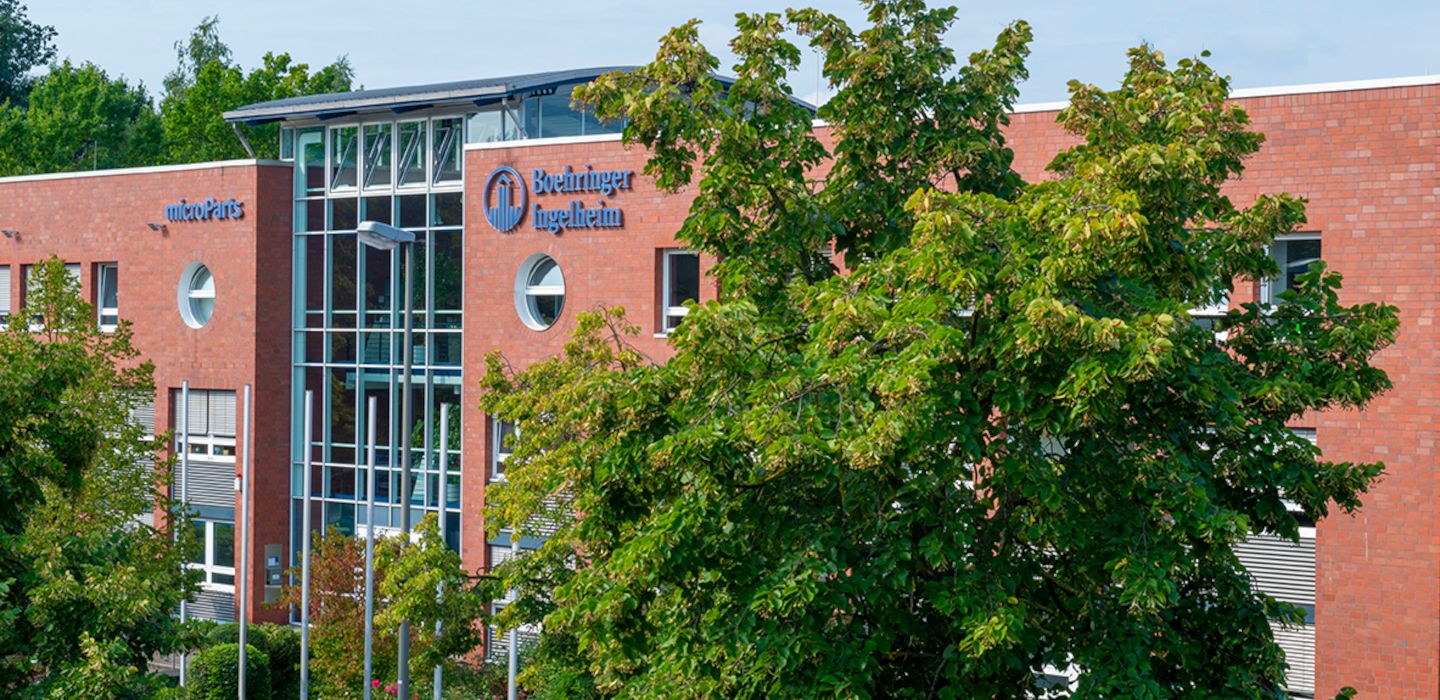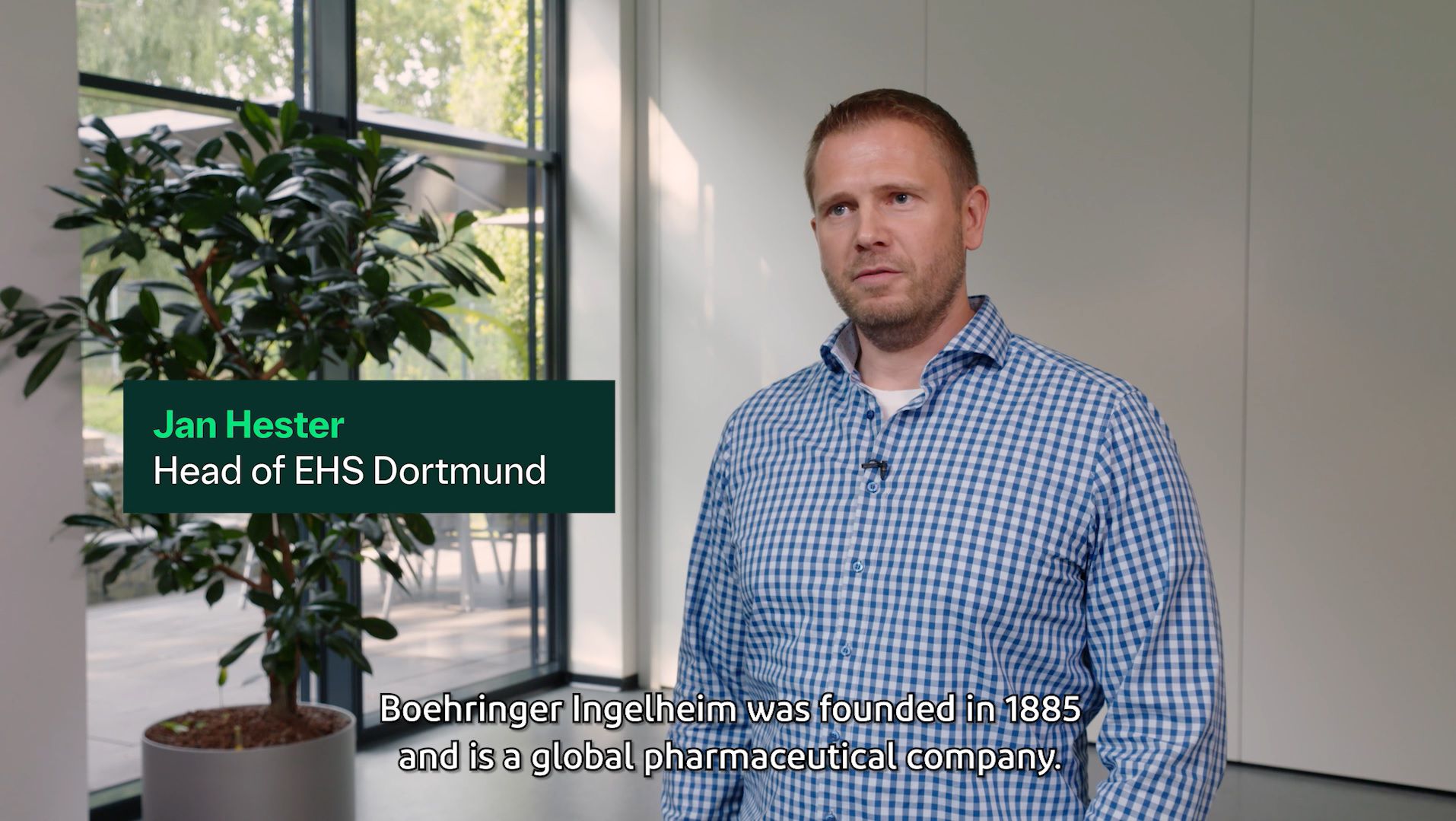DuPont Has Helped Leading Pharmaceutical Manufacturer, Boehringer Ingelheim Dortmund, Recycle 99 Percent of Its DuPont™ Tyvek® Garments
Health, Safety and Environmental (HSE) managers, as well as quality demands in pharmaceutical companies, face two core challenges: keeping workers safe, while protecting products against contamination. Now more than ever, there is another challenge to address: waste from disposable personal protective equipment (PPE).
The unprecedented volume of plastic waste generated during the COVID-19 pandemic urged the HSE industry to tackle the environmental footprint of disposable PPE. This goal is central to the sustainability strategy of Boehringer Ingelheim, a leading research-driven pharmaceutical organisation.
The company joined the DuPont Personal Protection waste management programme for disposable cleanroom garments. Nearly all DuPont™ Tyvek® 500 coveralls used at the Boehringer Ingelheim Dortmund manufacturing facility are now recycled, significantly reducing residual waste.

<span style="font-size: 32px"><strong>The challenge: making disposable cleanroom PPE recyclable</strong></span><br><br><span style="font-size: 18px">Founded in 1885, Boehringer Ingelheim is a family-owned organisation with over 53,000 employees and is present in 130 countries. The company’s two core business units are Human Pharma and Animal Health. Throughout its history, Boehringer Ingelheim has developed transformative breakthrough therapies for some of the most prevalent medical conditions, from cardiovascular disease to cancer and lung disease.<br><br>Boehringer Ingelheim's medical device for treating Chronic Obstructive Pulmonary Disease (COPD) is the propellant-free inhaler RESPIMAT®. Up to 45 million of these devices are manufactured yearly at Boehringer Ingelheim’s <a target="_blank" href="https://www.boehringer-ingelheim.com/sites-around-world/dortmund"><span style="color: rgb(228,0,28);"><b><u><span class="fontsize16">state-of-the-art facility</u></b></a></span> in Dortmund, Germany. <br><br> Part of the RESPIMAT® production process occurs in cleanroom environments (Grade D) according to the <a target="_blank" href="https://www.gmp-compliance.org/guidelines/gmp-guideline/eu-gmp-annex-1-manufacture-of-sterile-medicinal-products"><span style="color: rgb(228,0,28);"><b><u><span class="fontsize16">E.U. GMP Annex 1: Manufacture of Sterile Medicinal Products</u></b></span></a> guidelines. PPE like coveralls and gowns are essential to protect workers in these environments against exposure to hazardous chemicals. This equipment is also critical to preventing contamination that can compromise RESPIMAT®’s safety and quality.
Studies have shown that cleanroom operators account for up to three quarters of contamination incidents.[1] Personnel and visitors entering cleanrooms occasionally for inspection or maintenance are no exception. Boehringer Ingelheim’s HSE department equips these workers with DuPont™ Tyvek® 500 disposable coveralls. A non-woven material made of continuous high-density polyethylene (HDPE) filaments, DuPont™ Tyvek® fabric is low-linting, helping to minimise the risk of contamination in cleanroom environments.
The downside of disposable coveralls is that, by definition, they are non-reusable, leading to significant waste. Boehringer Ingelheim was eager to address this problem as part of its broader sustainability strategy. Like DuPont, the company is committed to the U.N. Sustainable Development Goals and strives to improve sustainability across every aspect of the business.
Whereas non-contaminated disposable PPE could be recycled, this process has historically faced two challenges. Firstly, most coveralls on the market are made using blends of plastics, which makes the recycling process complex. Secondly, even when garments are recycled, the result is low-quality plastics with limited applications. The unique nature of DuPont™ Tyvek® mono material combined with DuPont’s recycling programme enabled Boehringer to overcome these limitations.
The solution: a new recycling initiative for disposable coveralls
DuPont™ Tyvek® protective clothing is made using a single material – High Density Polyethylene (HDPE) – through a patented flash-spinning technology. This characteristic makes this disposable PPE easier to recycle than garments made of multi-material fabrics. In addition, HDPE can be turned into quality end products with multiple applications.
Thanks to the unique features of DuPont™ Tyvek® fabric, DuPont developed a successful recycling programme for customers in North America, and a similar programme was recently extended to Europe. Boehringer Ingelheim’s production facility in Dortmund was among the early adopters of this initiative in 2020.
The HSE team conducted extensive regular testing on used DuPont™ Tyvek® 500 protective clothing, establishing that the coveralls were rarely contaminated and, therefore, recyclable. When DuPont’s waste management initiative came along, Boehringer Ingelheim immediately took advantage of this opportunity.
“As a company, we share DuPont’s sustainable mindset,” comments Jan Hester, Head of Environment, Health and Safety at Boehringer Ingelheim Dortmund. “We saw the recycling initiative as a great opportunity to improve our waste management and to move toward a circular economic model.”
Boehringer Ingelheim worked with DuPont to develop an efficient waste management process. The first step involves testing used DuPont™ Tyvek® 500 coveralls individually to ensure they are contaminant-free. The clothing is then compacted using a baler machine and palletised to minimise transport costs and emissions. The pallets are then shipped directly to the recycling facility, where the used coveralls are granulated and used for multiple HDPE end products.
The result: moving closely toward a 100% recycling rate
On average, Boehringer Ingelheim collects and ships around 200 kgs of used clothing for recycling per quarter. The company has achieved an impressive 99 percent recycling rate for its DuPont™ Tyvek® disposable garments.
“We are very proud of the amazing results DuPont has helped us achieve so far,” comments Mr Hester. “We are committed to advancing our sustainability goals toward a circular model, and our collaboration with DuPont will enable us to continue optimising our waste management process."
Over time, Boehringer Ingelheim intends to extend its efforts to other manufacturing facilities, setting an example for pharmaceutical companies committed to making PPE more sustainable.
DuPont connects users of Tyvek® protective clothing who are interested in joining the program with a recycling facility based in Germany. Find out more about DuPont™ Tyvek® protective garment recycling program at: Personal Protection Contact Us (dupont.co.uk)
[1] Ramstorp, M., Introduction to Contamination Control and Cleanroom Technology, Wiley VCH, 2000, Weinheim (Germany)
